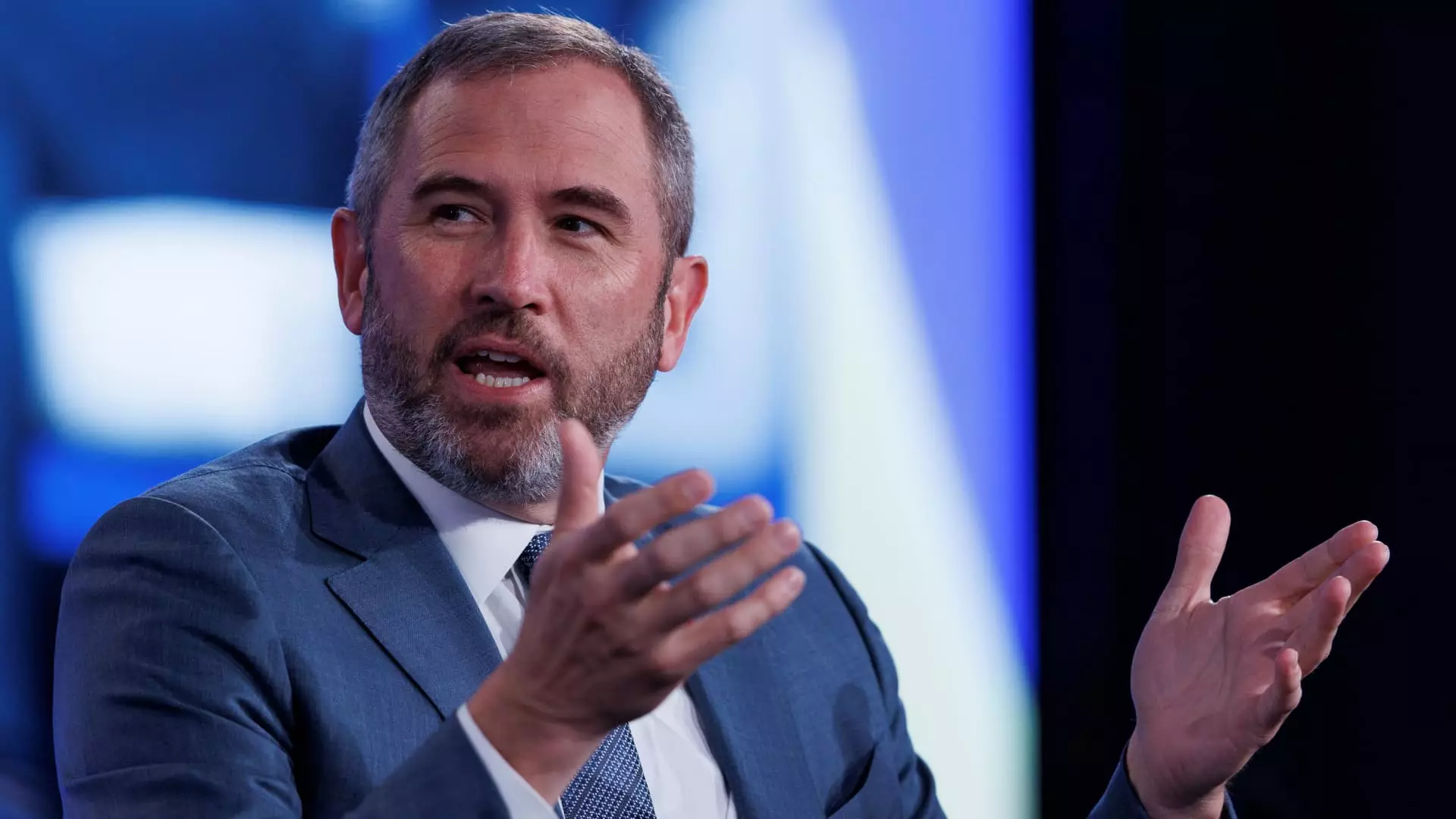As the 2024 elections approach, Brad Garlinghouse, CEO of Ripple Labs, exudes a sense of optimism regarding the potential for favorable regulatory developments in the cryptocurrency space. Having historically expressed skepticism towards U.S. crypto regulations, Garlinghouse now perceives a significant shift in political dynamics that could benefit the crypto sector. He recently articulated his belief that the upcoming elections could usher in “the most important election we’ve had,” predicting that irrespective of the outcome, the next Congress will lean more towards pro-crypto and pro-innovation policies than ever before.
Garlinghouse’s insights come amid a backdrop of Ripple navigating a challenging regulatory landscape, especially in the United States, where much of its business is conducted abroad. He pointed out that approximately 95% of Ripple’s operations take place outside U.S. borders, a direct response to the increasingly contentious regulatory environment the company faces at home. This sentiment reflects growing concerns among tech innovators and investors that the U.S. may hinder technological advancement due to its complicated regulatory frameworks.
Ripple’s contentious relationship with the U.S. Securities and Exchange Commission (SEC) culminated in a significant victory last year when a judge ruled that XRP, Ripple’s associated digital asset, is not a security when sold to retail investors on exchanges. This landmark ruling has provided a glimmer of hope for the entire crypto industry, which has suffered under the weight of regulatory scrutiny. Garlinghouse viewed this outcome as pivotal, embodying a broader narrative of progress within the sector.
However, he remains acutely aware of the obstacles that still exist. The ongoing friction between crypto businesses and regulatory authorities is palpable. Hence, Garlinghouse’s advice to fintech start-ups to “incorporate outside the United States” encapsulates the urgency many entrepreneurs feel in light of the current regulatory climate. While the legal landscape evolves, avoiding U.S. jurisdiction is becoming an increasingly strategic choice for crypto firms seeking freedom from what they see as a stifling regulatory environment.
Political Contributions and Industry Sentiment
Ripple’s financial contributions to pro-crypto political entities, totaling upwards of $45 million funneled to the Fairshake political action committee, further illustrate the company’s commitment to shaping a more favorable political landscape for cryptocurrency. Notably, Garlinghouse highlighted recent substantial donations from Ripple co-founder Chris Larsen to Vice President Kamala Harris’s campaign, indicating strategic moves aimed at fostering relationships within the political spectrum.
Garlinghouse’s choice of attire—a purple tie—symbolized the ambiguity and complexity of political affiliations in the crypto industry. Particularly given the contrasting attitudes of competing political figures, such as former President Donald Trump, who has championed himself as “the crypto president,” and Harris, who has maintained a more measured stance. Garlinghouse contended that Harris’s historical connections to Silicon Valley suggest a potential for a more favorable view of technology, despite some apprehension in the industry regarding her position on crypto regulation.
Amid these political developments, it is crucial to recognize the increasing partisan sentiment emerging within the crypto community. Once characterized by bipartisan support, the crypto industry now finds itself grappling with divided opinions, particularly regarding the current administration’s approach to regulation. Garlinghouse reflected on the Biden administration’s stance, characterizing it as an “attack” on the crypto industry that has created a chilling effect on banking relationships with crypto businesses.
The notion of “Operation Choke Point 2.0,” a term gaining traction within the industry, encapsulates these growing anxieties. Garlinghouse cautioned that regulatory hostility—particularly from entities like the Treasury and the Office of the Comptroller of the Currency—continues to suppress innovation and confine the growth potential of many burgeoning companies. As the political landscape shifts, the anticipation of a regulatory “reset” looms large, with Garlinghouse foreseeing that progress towards a more crypto-friendly environment is not only possible but inevitable.
While Garlinghouse has refrained from endorsing specific candidates, he demonstrated his support for John Deaton, an attorney looking to unseat Senator Elizabeth Warren, a prominent critic of the crypto industry. This endorsement highlights the importance of aligning political support with the industry’s goals and aspirations, particularly in what many perceive as a crucial turning point for cryptocurrency in America.
As the national conversation about crypto regulation evolves, Garlinghouse embodies the hope and resilience of a sector that remains indefatigable in the face of adversity. With the impending elections presenting both a challenge and an opportunity, the crypto industry is at a crossroads, prepared to push for change and charter a path towards a more favorable and innovative regulatory landscape in the years to come.

